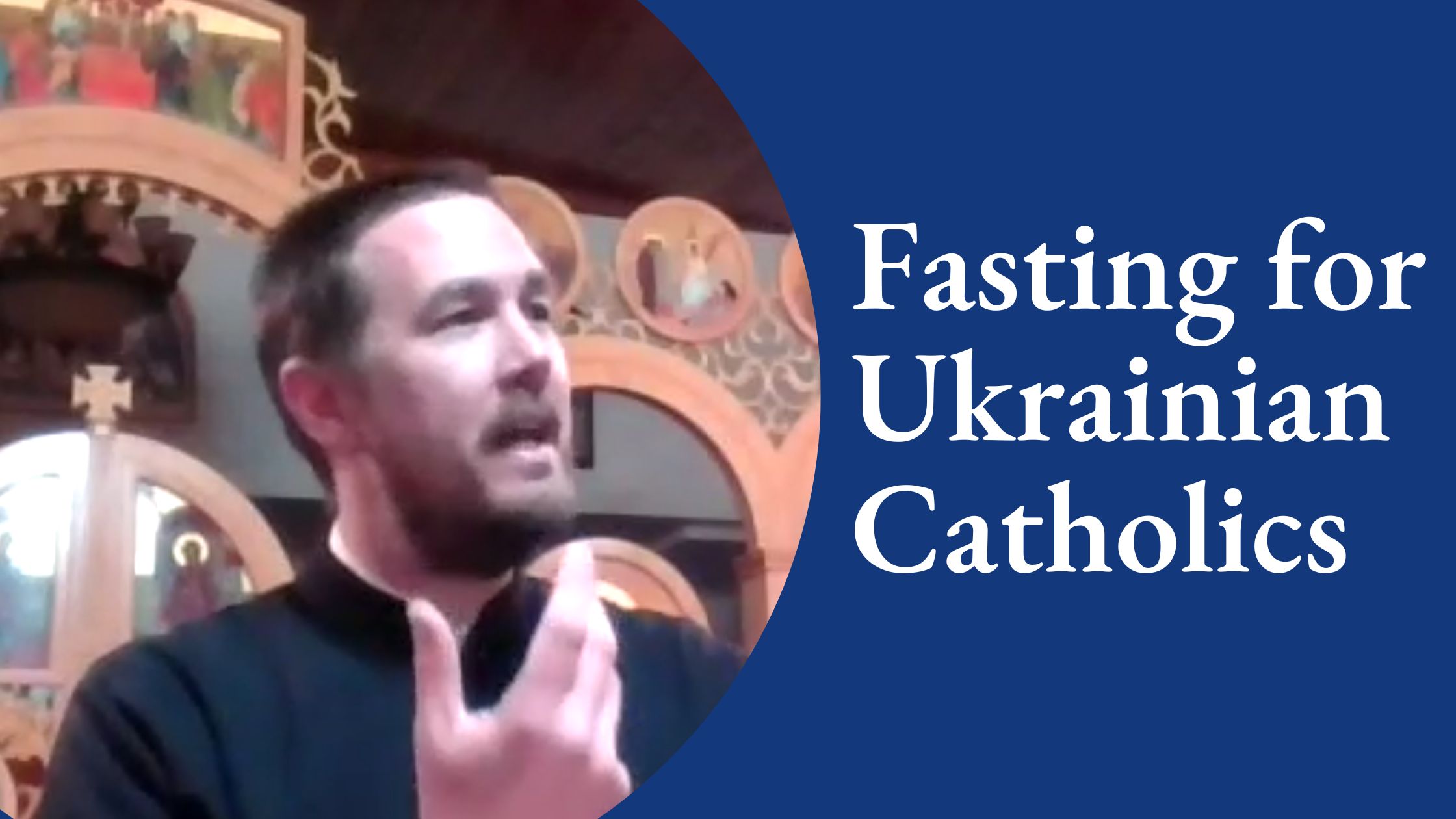Fasting is voluntary. It is an imposed, self-discipline, and expected of all who are physically able. To help us, the Church sets out both the maximal and minimal rules for fasting. Faithful Christians need to take into account their individual circumstances, – health, age, physically, demanding jobs, etc., when making decisions around fasting. With the exception of nursing and expectant mothers, small children, the poor, the mentally or physically, ill or aged, all are required to keep the minimal fast
Minimum Required Days of Fasting
According to the synod of bishops of the UGCC, the faithful are required to observe at least the following:
All Fridays:
(some exceptions indicated on the calendar) – no meat or meat products.
Great Lent:
First day of Great Lent – no meat, dairy and eggs, or foods that contain these ingredients.
First week of Great Lent – no meat or meat products.
Mondays, Wednesdays, and Fridays of Great Lent – no meat or meat products.
Holy Week – no meat or meat products
Great, and Holy Friday – no meat, dairy and eggs, and foods that contain these ingredients.
Apostles Fast, Dormition Fast, Nativity Fast:
Wednesdays and Fridays – no meat or meat products.
Other One Day, Strict Fasts:
No meat, dairy, eggs or foods that contain these ingredients.
Exaltation of the Holy Cross (Sept 14)
Eve of the Nativity (Dec 24
Eve of Theophany, (Jan 5)
Beheading of John the Baptist, (Aug 29)
Fasting before Communion and Other Holy Mysteries:
According to ancient and pious tradition, no food or water is to be taken from midnight before Divine Liturgy. Fasting before confession or holy anointing is beneficial and strongly recommend it. The Eucharistic fast at minimum requires abstinence from all food and drink, except for water one hour prior to Divine liturgy.
The rules given here are only part (the most external part), of a true fast, which will include increased prayer and other spiritual disciplines, and may include resolutions to set aside other aspects of our day-to-day life, (such as caffeine or television), or to take up practices such as visiting the sick. If you adopt it, beware of pride, and pay no attention to anyone’s fast but your own.
Do not substitute the notion of “deciding what to give up for lent” for the rule that the Church has given us. First keep the Church’s fasting rule as well as you are able, then decide on additional disciplines in consultation with your priest. Those who attempt to keep the Church’s traditional fast will find that, though the temptations to pride and legalism are real, the spiritual benefits are great. A return to more diligent fasting could play a large part in the spiritual renewal of our churches.
This summary of the fasting rules of the Ukrainian Catholic Church is adapted from a text prepared by reader Ilya Galadza for the parish of St. Elias the Prophet in Brampton, Ontario. Adapted by the Office for Family and Life, Edmonton Eparchy, March 2023. Permission granted to reproduce for personal or educational purposes.
Deacon Cyril Kennedy grew up in Brampton, Ontario, where he attended St. Elias Ukrainian Catholic Church. He finished a BA at the University of Toronto and entered Holy Spirit Seminary in Ottawa in 2010, taking most of his classes at the Sheptytsky Institute. In 2014, he moved to Washington, D.C., where he began a PhD in Liturgy and Sacramental Theology at the Catholic University of America. He was ordained a deacon in 2018 and defended his dissertation last April(2022). Currently, he serves as Director of Liturgy for the Edmonton Eparchy and as part of the Eparchial Family and Life Office, and sometimes teaches at Newman Theological College. He is married to his lovely wife Anna and has three beautiful children – Lucy, Winnifred and baby Edmund.

